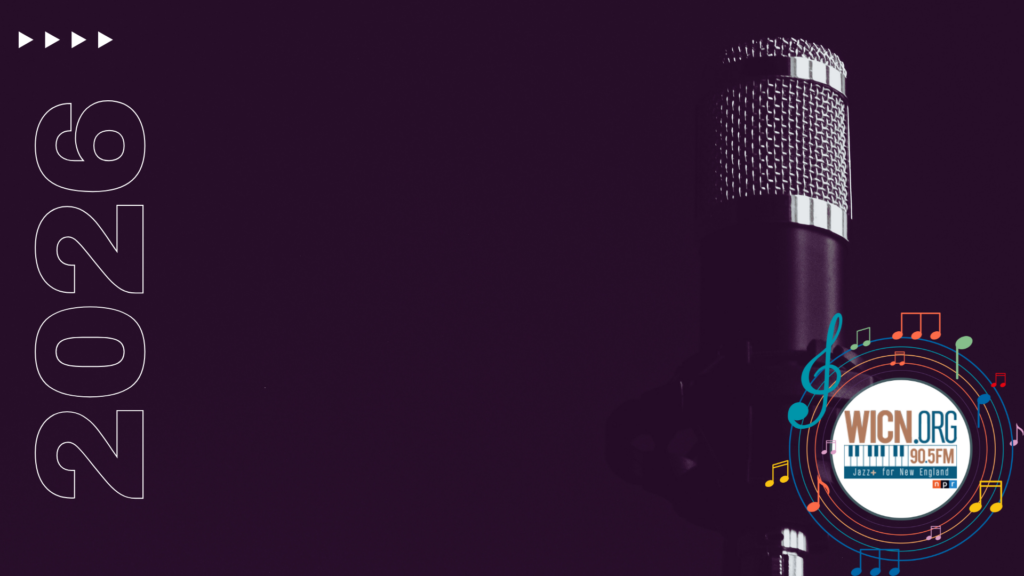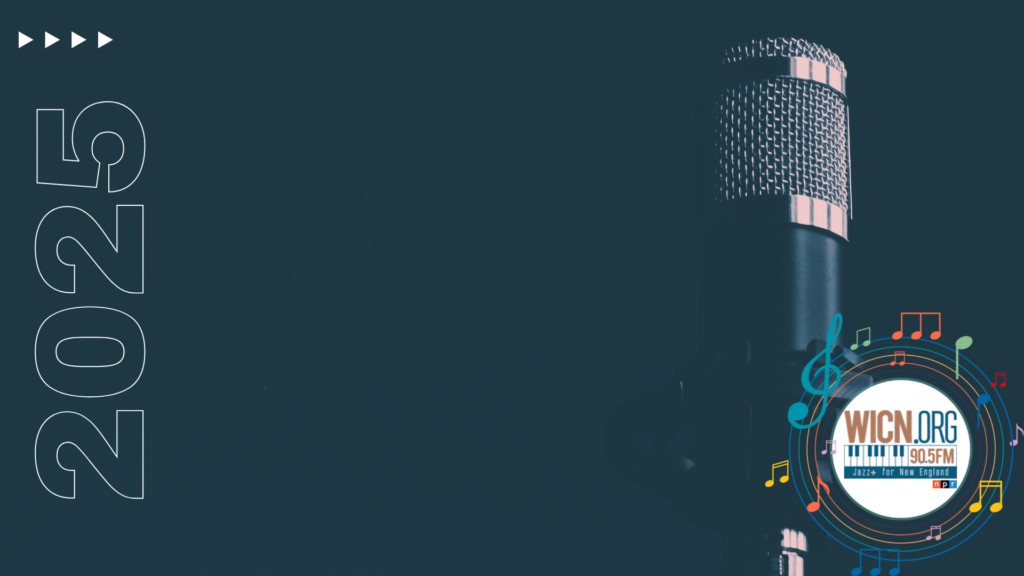WICN Artist of the Month, December 2023: Chet Baker
Written by Doug Hall on December 1, 2023
Common in the jazz world–and the wider music industry, to be sure–there are personal story arcs that are dramatically tragic, until the musician manages to rebound and reestablish their career. But if any one musician could carry a legacy that contradicted his early youthful Hollywood-handsome visage that hid a host of darker emotions, Chet Baker would be that combination. His sensitive, moody image would serve to draw early attention in combination with his matinee-idol looks, and a smooth trumpet melody that linked persona to Baker as an artist. However, he was to become a tragically romantic jazz icon “whose lyrical trumpet lines and tender vocals helped define the cool, West Coast sound.”
In the 1950s, Baker would find his most significant early professional opportunity developing a friendship and association with legendary bandleader, composer, arranger, and renowned baritone saxophonist Gerry Mulligan and his quartet. Mulligan’s quartet was seen as revolutionary for his arrangements, primarily because Mulligan did not have a pianist, which was often the core counter-foundation to a horn player. Both horn players, Mulligan and Baker, instead would use counterpoint in the melody, in highly unusual arrangements. “The unorthodox set up allowed its two horn players more harmonic freedom, however, and prompted them to play intertwining contrapuntal melodies. The group’s gigs attracted huge interest, which led to them recording for Dick Bock’s Pacific Jazz label, where they scored a hit with an instrumental rendition of the jazz standard My Funny Valentine.”
Already claiming a sound distinct from Bebop’s rapid-fire flurry of notes as led by contemporaries Charlie Parker and Dizzy Gillespie, Baker’s trumpet sound was elegant, relaxed, modal, and minimalist – like Miles Davis. He delivered his emotion through mood and tone. As stated by jazz critic Charles Waring of UDiscovermusic.com, “he could communicate in a few choice notes what other musicians couldn’t express if they had a hundred at their disposal.”
In ’54, after having to leave Mulligan’s quartet following the bandleader’s incarceration for drug possession, Baker released his first solo effort, Chet Baker Sings. Receiving a significant audience response, commercial exposure, and resulting record sales, his first solo effort had been a success. In an unusual turn for a horn player, he had also just embarked on a vocalist interpretation of jazz and combined his West Coast-smooth trumpet tone to accompany dreamy crooning vocals. Allaboutjazz speaks of Baker’s vocal influence as pushing boundaries of gender sensitivity: “He brought the ethos of cool to a kind of climax by moving into territory that had once belonged only to female vocalists and opened up the emotional space to show vulnerability; a space that male singers had previously shied away from and which they were now more likely to inhabit.”
Recording for the Pacific Jazz label, Baker would make a series of successful albums, culminating with a standout, Baker & Crew in ’57. As reviewed by Mick Mickelson of audiobeat.com, “the swinging bop is in many ways quintessentially West Coast: a loping rhythmic foundation supports an overlay of well-arranged, melodic horns, the piano in a supporting role. Baker is characteristically pensive and lyrical — like Bill Evans on trumpet — and he has some taut interplay with Phil Urso on tenor sax.”
Baker’s alluring softer palette of notes, now making him the leader of this cool jazz movement in California, also found him beating out renowned trumpeters Miles Davis and Clifford Brown in both Downbeat polls and Metronome Magazine reader’s poll in the late ‘50s.
During this same period, Baker led his combos, increasingly recognized as an established artistic and innovative performer and bandleader, attracting exceptional musicians including a 1955 quintet with classically trained Belgian pianist Francy Boland. At this stage in his career, Baker committed to combining trumpet playing and singing.
In September 1955, he left for Europe for the first time, but he was already addicted to heroin, along with two of his other bandmates Dick Twardzik, a unique piano stylist, and his drummer Peter Littman, who is recognized as an influential modernist percussionist. His current pianist at the time, Russ Freeman, refused the tour based on the quartet’s drug use. Freeman’s concern for Baker and his quartet’s ongoing, rampant drug use and partying unfortunately was well founded and timely, as their pianist Twardzik died of a heroin overdose during the tour.
Despite the death of Twardzik, Baker completed his eight-month touring commitment, employing local European pianists, but the grip of addiction was taking its toll. He did, however record for the Barclay label; some of these sessions were released in the United States as Chet Baker in Europe. While there, he also recorded a rare accompaniment for another Grammy-nominated, multi-lingual vocalist Caterina Valente, who played guitar and sang on I’ll Remember April and Ev’ry Time We Say Goodbye.
Returning to Los Angeles, he managed some significant collaborations, including a reunion with Gerry Mulligan in ’57, Reunion with Chet Baker and a recording with Stan Getz in ’58, Stan Meets Chet. But Baker’s heroin addiction would cause his career to spiral out of control – arrested in Italy in ’59 after returning to Europe, for narcotic possession and imprisoned for over a year, he would then be expelled from Germany and the U.K. on drug-related offenses. He had completely succumbed to his drug habit, which consumed his musical career and impacted all aspects of his personal life (broken marriages, divorces, affairs, and charges of emotional and physical abuse). The other toll was the physical destructiveness of a lifestyle taking hold. Baker would lose front teeth through an assault by a fellow addict that would require dentures and would require him to readjust and adapt to his feel for the trumpet mouthpiece.
Returning to New York City in 1964, he tried to restart his career, but the remaining recordings from this period of the ‘60s were seen as uninspired, relying on reputation and providing mostly covers of other songs and compositions. In his own words, he was “paying the rent.”
He would not release another recording for 4 years, from ’68 to ’73, stopping all public performances, and, again, getting arrested for forging prescriptions. A judge released him, instead of sentencing him to prison, under the condition that he remain on methadone, which he did for 7 years.
Mounting a comeback, he would release two considerable recordings in ‘74. She was Too Good to Me, which was recorded with saxophonist Lee Konitz, and was favorably reviewed by critics. AllMusic’s Scott Yanow stated, “Now began his comeback after five years of musical inactivity with this excellent CTI date. Highlights include Autumn Leaves, Tangerine, and With a Song in My Heart. Altoist Paul Desmond is a major asset on two songs and the occasional strings give variety to this fine session.” Additionally, he would make his final recording, Carnegie Hall Concert, with his early mentor and bandleader, seminal baritone saxophone legend Gerry Mulligan. A special reunion since the original break-up of Mulligan’s quartet in ’53. Some of the original chemistry was still there with counterpoint melodic solos that touched some previously established standards.
With legalities overcome, by the mid-‘70s Baker was able to return to Europe, where he spent the rest of his life performing primarily, with occasional trips to Japan and periods back in the U.S. despite not having a permanent residence.
After all the time lost to drug addiction and incarceration and related personal strife, Baker had managed a second career. There were notable albums released during this period, including 1977’s Once Upon a Summertime, 1977’s Don Sebesky-produced You Can’t Go Home Again (which found him surrounded by luminaries, including Paul Desmond, Michael Brecker, Ron Carter, and Tony Williams, among others), and 1980’s Chet Baker with Wolfgang Lackerschmid, “a gorgeously atmospheric collaboration with the German vibraphonist.”
In the ‘80s, Baker attracted some attention from contemporary rock musicians including Elvis Costello, who would compose Almost Blue as a tribute, attempting to recreate Baker’s soft crooning sound in voice. Baker would cover his version in Weber’s documentary, Let’s Get Lost. A New York Times article reflected on his vocal interpretation: “Baker captures its yearning by holding tight to the melody almost as if he were reading sheet music. With his sound and pace, the track distills what Charlie Parker said of ‘that little white cat’ who blew ‘sweet, gentle, yet direct and honest.’ “
As an almost scripted ending to a tragic life, in 1988 Baker died from a fall off of an apartment balcony in Amsterdam, leaving no explanation, with the police report citing the death as an accident.
Regardless of the tragic nature of his life as a whole, his popularity has ascended. There is a deep well of resources, including documentaries and publications relating to Baker’s musical career, life, and instrumental and vocal influence. Let’s Get Lost (1988) by director Bruce Weber is an unblinking biographical account that was critically acclaimed at the time of release and earned an Academy Award nomination. Actor Ethan Hawke would portray Baker in a semi-biographical film, Born to Be Blue (2015). Musically, there has been a stream of posthumous recordings released. In particular, a “lost recording” has been added to Baker’s discography, Chet Baker: Blue Room: The 1979 VARA Studio Sessions in Holland.
Ironically, there has been an enormous fascination about the music and biography of Baker’s life since his death. Fortunately for jazz listeners, he has a catalog of over 100 albums recorded during his lifetime, and more additional material, (mostly live recordings from Europe), that have been released over the last three decades. Demand and attention remain high for his body of work.
Certainly, it is his musical touch and tone on the trumpet and his searching, melancholic crooning that connect his audience with his musical gift. But it is also his artistic honesty and heartfelt soul that draws attention to this tragic journey. As stated by jazz critic Charles Waring, “When he was at his best, the music he made with his horn was pure poetry, and that’s why it continues to resonate with listeners, both young and old, today.”



Stanford On April 22, 2024 at 3:41 pm
This mystical
Jazz god…
Enthroned
With the
Biography
LOST IN A DREAM
says it all